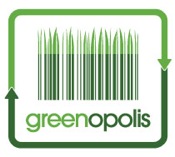“What Would We Do If ...?” Thinking Big on Spaceship Earth
Buckminster Fuller once likened our planet to a spaceship hurtling through the universe.
Thinking Big on Spaceship Earth
Buckminster Fuller once likened our planet to a spaceship hurtling through the universe.
Since no “instruction book” came with “Spaceship Earth,” he cautioned that to survive, we need to learn how to look at the planet as one whole system, and conserve resources accordingly. He urged us to “think big”.
“Thinking big” means expanding our own awareness. Most of us have a comfort zone, our own small system within which we live and work, and ignore the larger systems upon which our lives and work depend. Once we begin to look beyond the “mental fences” that keep us thinking small, we begin to discover things that need our attention.
To see how expanding our boundaries can lead to long-term change, consider Alcoa. In 1997, the head of the company’s Corporate En¬vironment Department, brought together a group of thirty manag¬ers representing most of the firm’s businesses around the world. For two days, they envisioned what their environ¬ment would look like over the next quarter century.
They set one ground rule: Whatever problems they might encounter when thinking about this potential future would be the company’s problems to solve. There would be no foisting responsibility upon governments, soci¬eties, or other companies; no blame games or passing the buck.
Once they set this rule, the group began asking themselves: “What would we do if ...”
“... there were no more waste dumps?” When the group looked out to 2020, “We talked about things like landfills,” says Atkins. “‘If the world has any sense at all," we said, "we won’t be allowed to dump stuff in landfills for future generations to deal with. So that’s one of the things that we ought to be thinking about in terms of our vision."
“... water became increasingly scarce?” Water quickly went to the top of the agenda because aluminum production is very water-intensive. Even ten years ago, it was starting to become a problem for Alcoa, and the com¬pany’s leaders knew it would only get worse. “California had already de¬nied an expansion permit because the facility used too much water,” says Atkins. “We were told to relocate the facility somewhere else. That told us that water would probably be the limiting resource for a lot of our plants around the world, including many places where we thought water was never going to be a problem.” The group also envisioned a continual in—crease in the public’s sophistication about discharges such as “chlorine, mercury, and the buildup of soluble materials in water. A lot of people don’t trust the quality of tap water anymore.”
“. . . emissions had to be curtailed or eliminated entirely?” Similarly, the Alcoa team recognized that emissions that had long been part of the business—such as sulfur dioxide, Nitrous oxide, and carbon dioxide—would have to be dramatically cut back or eliminated. When they imagined a future without these emissions, they real—ized it made sense economically as well as environmentally, and in the short term, as well. Cutting emissions stops waste, and stopping waste saves money.
They came to two conclusions: Leadership was needed to show that real change was possible, and that strategies around waste and conservation problems would make business sense. As Atkins recalls, they reported to the company’s Executive Council, saying, “We can do this and stay in business. In fact, we’ll be better off.”
Alcoa’s exercise in thinking decades ahead opened many minds, and led to targets and changes. They set a company target of zero process water discharge from their alu¬minum plants. “That was radical then and it is now,” says Atkins. “People still raise their eyebrows.” Water usage fell 17 percent (relative to 2000 levels) by 2005; the company recently set new targets of 70 percent reduc¬tions by 2010 and zero discharge of process water by 2020. Other “stretch goals” included a 25 percent reduction in greenhouse gas emissions by 2010, and a 50 percent reduction in landfilled waste by 2005. The com¬pany reached its greenhouse gas reduction target seven years ahead of schedule, in 2003, and managed to cut landfilled solid waste by two thirds by 2005—leading them to set a new goal for 100 percent reduction of their year 2000 levels of landfilled solid waste by 2015.
How did they accomplish this? By engaging thousands of individuals. They approached their operations people with targets for dramatic reductions in water use and asked for their help. People came up with lots of ideas for water reduction, many small ones and a few big ones. Through the installation of closed-loop rinsing and cooling circuits, Alcoa’s facility in France achieved an 85 percent water use reduction, saving $40,000-a-year in operating costs. Their European Mill Products business in Fusina, Italy reduced water consumption by 95 percent by installing a closed-loop system that recycles and recirculates all water. Alcoa has already achieved their 2020 goal of zero water discharge in some refineries in Western Australia and Jamaica.
As the group looked to the future, their perspectives shifted, and side issues like waste and CO2 became core to the company’s strategy. “At best, we’re running a worldwide experiment that will prove not to be a problem,” said Atkins. “But at worst, we’re running a worldwide experiment that could drastically change the character of the planet. We think we’d better err on the side of conservatism and do some¬thing. We can provide some leadership.”
Greenopolis.com is dedicated to our users. We focus our attention on changing the world through recycling, waste-to-energy and conservation. We reward our users for their sustainable behaviors on our website, through our Greenopolis Tracking Stations and with curbside recycling programs.
GREENOP4506

